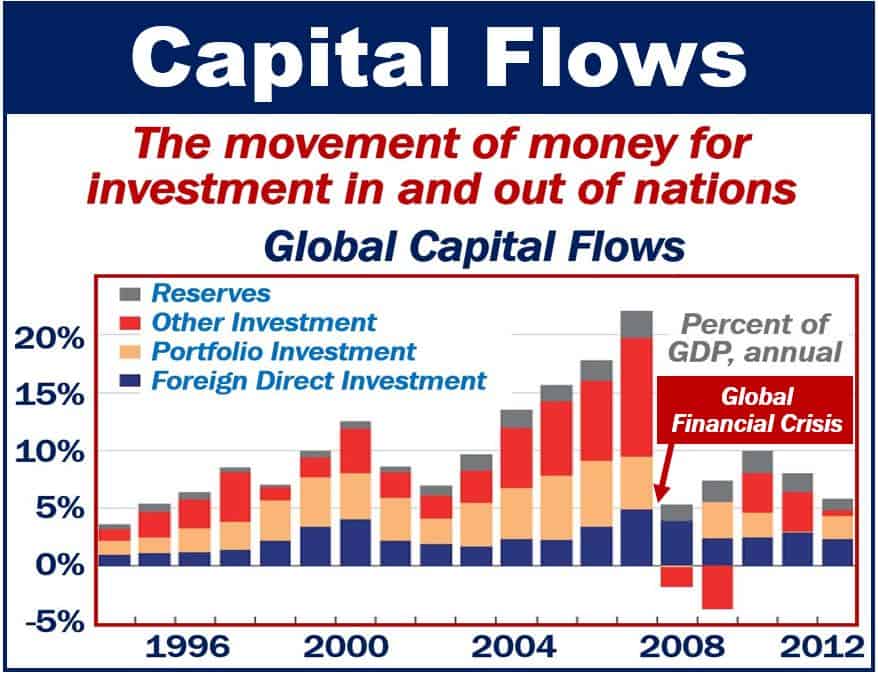What are capital flows? Definition and examples
The term ‘capital flows’ refers to the movement of capital, i.e., money for investment, in out of countries. When money for investment goes from one country to another, is a capital flow. All capital flows comprise just money that is a consequence of investment flows. The term does not include money people and businesses use to purchase each others’ goods and services.
Capital flows include, for example, the international movement of money into and out of the bond and stock markets. Cross-border mergers and acquisitions are also in this category.
Trading-Point.com has the following definition of the term:
“Capital flows are made up of all of the money moving between countries as a consequence of investment flows into and out of countries around the world.”
“In this case rather than money flowing between countries to purchase each other’s goods and services, we are referring to money flowing into and out of the stock and bond markets of countries around the world, as well as factors such as real estate and cross-border mergers and acquisitions.”

Capital flows – the Internet
Since the emergence of the Internet, online trading, and e-commerce, barriers to investment in foreign countries have declined significantly. Online trading is the act of trading – buying and selling – financial products on the Internet. The term e-commerce refers to doing business online, i.e., business via the Internet.
Today, it is much easier for fund managers and other investors to take advantage of opportunities globally.
If a country’s stock market today, for example, is doing particularly well, capital flows will instantly go in its direction. In other words, it will attract investors from other countries immediately.
The Internet has changed how investment products respond to market forces. While in the past, local demand and supply were the main drivers of prices, today international factors determine market forces.
Market forces refers to the forces of supply and demand.
Capital flows – currency values
Capital flows can influence the value of a country’s currency.
If the Zurich stock market becomes incredibly attractive one week, demand for Swiss francs will rise. This could push up the value of Switzerland’s currency.
The same can happen if one giant company takes over another huge company in another country. If US pharmaceutical multinational Pfizer acquired Swiss multinational Novartis, demand for Swiss francs would increase while the supply of dollars would rise. Pfizer would need to sell dollars for Swiss francs in order to complete the acquisition.

